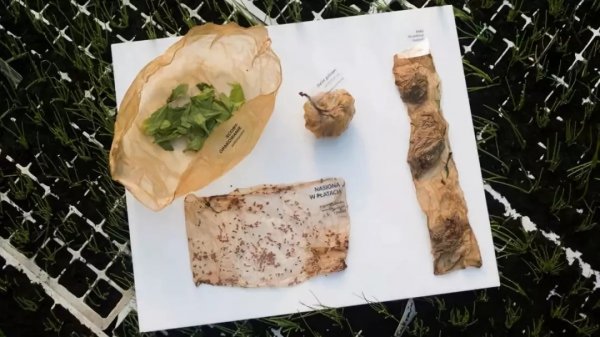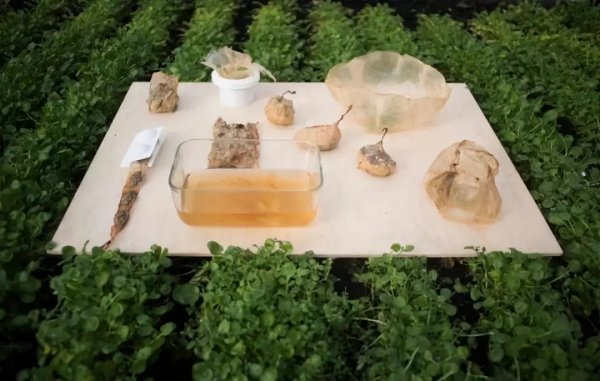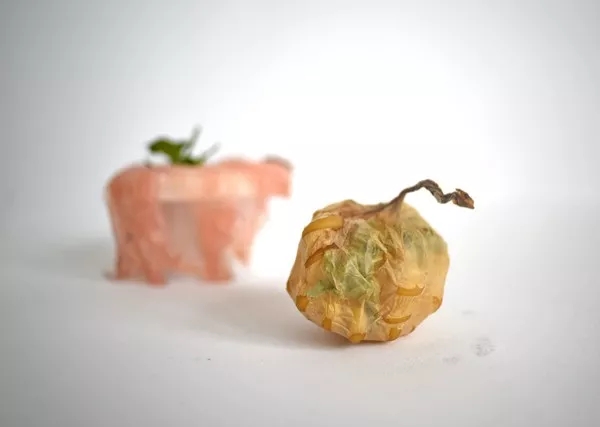New food packaging materials are “degradable†and “zero wasteâ€
The problem of plastic pollution is becoming more and more serious. In recent years, designers have also begun to look for natural degradable materials to replace ordinary plastics. What we can see now include leaves, algae, flax, and even crab shells.

Recently, Roza Janusz from the School of Forms of Schools at the SWPS School of Social Sciences and Humanities in Poland created an alternative to plastic food packaging as part of her graduate program.
This package for symbiotic culture of bacteria and yeast is called "Scoby" (Symby Culture Of Bacteria and Yeast). Specifically, it is produced by adding sugar and other organic substances to kombucha, a beverage made from tea, yeast and bacteria via fermentation. In more than two weeks of fermentation, designers need to maintain room temperature at around 25 degrees Celsius. Once the incubation is complete, the surface of the liquid forms a plastic film that acts as a barrier to oxygen. After that, put it in a different mold and the food package is made.
This package is suitable for storing dry or semi-dried foods, including nuts, herbs, salads, and even ready-to-eat foods.

This package can also be eaten or used for composting after eating the food. “Scoby tastes a touch of Kombucha. But if you cook it with the food it packs, it will absorb the latter,†Roza said. This also means that for ready-to-eat foods, you simply put them in the oven and pan, and the packaging film melts into juice with the taste of the food itself.

In Roza's view, this way of cooking food in the package will help “zero waste†in the final process from farm to table.
Of course, "degradable" is not its only advantage. “The composition of this package is healthy bacteria, so it is also nutritionally valuable to our digestive system and soil,†Roza said. “And it is a product of fermentation with a low pH. Therefore, not only Scoby owns Longer shelf life, it also prevents food spoilage.†However, the life of this biopackage varies according to the food or substance it is packaged in. For example, nuts with acidic pH can even extend Scoby's shelf life. .
After launching the finished product this spring, Roza is actively promoting it as a commercial solution. “Biocomposites can be easily integrated into industrial-grade agricultural production processes. In the future, this will help farmers produce their own. Packaging. It may still be rudimentary, but it is taking the actual pace in the right direction."
“Cultivating new raw materials is becoming more and more popular in the design world, and it may be easier and more accessible than we think.â€